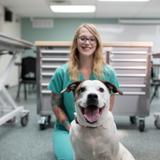- Denver Automotive and Diesel College offers you a great future if you’re interested in learning to be an Automotive Technician. Training focuses on skills that you’ll use every day in your new career, as well as honing the dedication, drive and discipline that will help you achieve success. If you’ve been looking at automotive technology schools, choose an automotive and diesel technology school that focuses on hands-on training, with industry standard equipment and experienced instructors – choose Denver Automotive and Diesel College!
School Highlights
Lincoln College of Technology-Denver serves 1,850 students (100% of students are full-time).
The college's student-teacher ratio of 20:1 is lower than the state community college average of 23:1.
Minority enrollment is 59% of the student body (majority Hispanic), which is more than the state average of 51%.
Quick Facts (2026)
- Enrollment: 1,850 students
- Acceptance Rate: 37%
- Student-teacher ratio: 20:1
- Minority enrollment: 59%
- Source: Integrated Postsecondary Education Data System (IPEDS)
School Overview
The teacher population of 92 teachers has stayed relatively flat over five years.
Lincoln College of Technology-Denver
(CO) Community College Avg.
Carnegie Classification
Special Focus Two-Year: Technical Professions
Baccalaureate/Associate's Colleges: Mixed Baccalaureate/Associate's
Institution Level
At least 2 but less than 4 years
At least 2 but less than 4 years
Institution Control
Private for-profit
Private, non-profit
Total Faculty
92 staff
92 staff
Number of Programs Offered
12
46
School Calendar
Student Body
The student population of Lincoln College of Technology-Denver has grown by 20% over five years.
The student-teacher ratio of 20:1 has decreased from 23:1 over five years.
The Lincoln College of Technology-Denver diversity score of 0.66 is less than the state average of 0.69. The school's diversity has grown by 6% over five years.
Total Enrollment
1,850 students
2,252 students
Student-Teacher Ratio
20:1
23:1
# Full-Time Students
1,850 students
743 students
# Part-Time Students
n/a
1,509 students
# Enrollment Undergraduate
185 students
185 students
# Full-Time Undergraduate Students
1,850 students
536 students
# Full-Time Graduate Students
n/a
95 students
# Part-Time Undergraduate Students
n/a
1,509 students
Total Dormitory Capacity
n/a
307 students
% American Indian/Alaskan
2%
1%
% Asian
2%
6%
% Hispanic
41%
25%
% Black
6%
6%
% White
41%
49%
% Hawaiian
n/a
3%
% Two or more races
5%
4%
% Non Resident races
n/a
2%
% Unknown races
3%
4%
Diversity Score
0.66
0.69
College Completion Rate (Students who graduate in less than 4 years)
65%
64%
College Completion Rate (Students who graduate in 4 years or more than 4 years)
n/a
27%
Average Graduate Earnings (10 Years)
$39,200
$33,300
Tuition and Acceptance Rate
% Students Receiving Some Financial Aid
90%
83%
Median Debt for Graduates
$11,730
$10,981
Median Debt for Dropouts
$4,750
$5,000
Acceptance Rate
37%
93%
Source: 2024 (or latest year available) Integrated Postsecondary Education Data System (IPEDS)
School Notes
- School Mascot: Lincoln Wolves
- Denver Automotive Institute, as we were known then, held its first class of 27 students in downtown Denver, Colorado in May of 1963. As student population and demand grew, a Diesel Mechanics curriculum was added in 1966. Within three years a newly-renovated 71,000 sq. ft. facility opened, fully realizing our new name: Denver Automotive and Diesel College - DADC. Enhancing program offerings and estabilishing credibility as one of the top national educators became a priority. The consistent and regular refinements we made met various NATEF requirements and we became a "Master Certified Automotive School". Soon afterwards, we further enhanced our programs by adding Associate of Applied Science Degree Programs in Automotive, Diesel and Master Technology. DADC's Automotive and Diesel programs can help you learn the diagnostic procedures necessary to determine complex problems, fix them and provide ongoing maintenance. In addition, you'll have an in-depth understanding of why automotive and diesel engines work the way they do, allowing you to better fix and maintain vehicles, and provide a higher level of service. Using hands-on training, a solid system of knowledge and our long-standing reputation with major manufacturers and shops, we can help you jump-start your career in the Automotive and Diesel Industries. Denver Automotive and Diesel College (DADC) can offer you endless possibilities and opportunities to pursue skiing, snowboarding, snowdecks, snowskates, and other winter activities. DADC utilizes several fund sources to assist students in paying for their education. Funding is provided by Federal grants, various scholarships, Veterans benefits, low interest Perkins (Campus Based) loans, low interest Stafford loans, and by other fund sources specifically designed to fund education to qualified applicants at DADC.
- Sample of notable school alumni/alumnae:
- J. Rivera - Medical Assistant graduate, Iselin NJ Campus -
- Christian Rado - Electronics graduate, Allentown PA Campus -
- Dion G. - Diesel and Truck Technology graduate, Indianapolis IN Campus -
Frequently Asked Questions
What is the acceptance rate of Lincoln College of Technology-Denver?
The acceptance rate of Lincoln College of Technology-Denver is 37%, which is lower than the state average of 93%.
Who are famous alumni from Lincoln College of Technology-Denver?
Lincoln College of Technology-Denver famous alumni include: J. Rivera - Medical Assistant graduate, Iselin NJ Campus, Christian Rado - Electronics graduate, Allentown PA Campus and Dion G. - Diesel and Truck Technology graduate, Indianapolis IN Campus.
In what neighborhood is Lincoln College of Technology-Denver located?
Lincoln College of Technology-Denver is located in the Montbello neighborhood of Denver, CO.
Recent Articles

Community College Policies and Financial Aid Guide 2026
A 2026 guide to community college policies and financial aid, including FAFSA updates, state aid, tuition rules, and smart planning tips.

Get Better Grades in Community College by Being Social (2026 Update)
Learn how being social in community college boosts grades, retention, and career success. Updated 2026 strategies for academic achievement.

Navigating Community College as an Adult Learner in 2026
A practical 2026 guide for adults returning to community college, covering admissions, financial aid, career planning, and flexible learning options.






